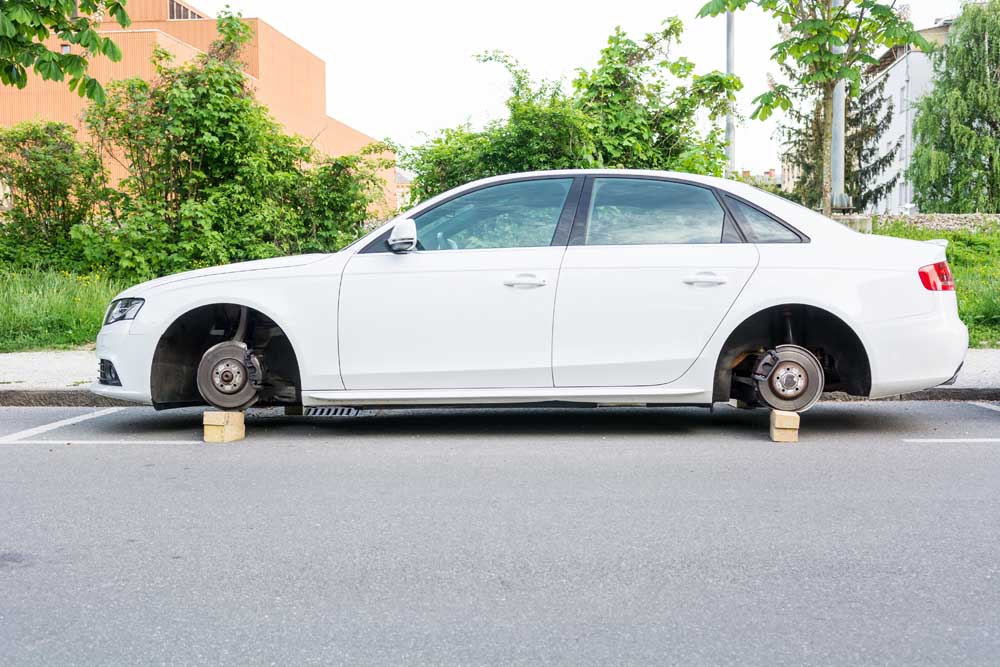Editorial: Redmond City Council right to target Oregon’s car-theft problem
Published 12:00 am Sunday, July 22, 2018

- 123RF
On July 10, Redmond City Council approved a list of four priorities for the 2019 legislative session. One of them is changing Oregon’s car-theft law. If this surprises you, you’re probably not a police officer, a prosecutor or one of the scores of Redmond residents whose vehicles have been swiped in recent years. Oregon does, indeed, have a car-theft problem that begs for legislative action.
The League of Oregon Cities will use Redmond’s input, and that from more than 200 other cities, to focus its lobbying next year. Redmond leaders decided not to highlight issues such as public pension reform that are bound to receive lawmakers’ attention anyway. They focused, instead, on important problems that are not guaranteed a starring role in next year’s session, though Redmond certainly won’t be alone in spotlighting car theft.
Trending
At the heart of the problem are two Oregon Court of Appeals decisions that have made prosecuting car-theft cases difficult to the point of absurdity.
In the first of the two decisions, the Appeals Court in 2014 overturned the car-theft conviction of a man named Jerrol Shipe. Two years earlier, police had found Shipe sitting in the driver’s seat of a stolen truck he claimed he’d gotten from “a friend named Richey.” Among the items found either in Shipe’s possession or in the truck: meth, bolt cutters, documents with other people’s names on them and a locked case upon which someone had painted “crime committing kit.” You just can’t make this stuff up.
Shipe was convicted of several crimes, including unauthorized use of a vehicle. In tossing this conviction, the Appeals Court determined that the evidence was insufficient “to support a determination that defendant actually knew that the truck he was using was stolen.” Emphasis on “knew.”
Less than a year later, the Appeals Court tossed the conviction of a man named Randy Korth, who had been stopped while driving a stolen truck. Korth said he’d gotten the truck “from a guy named Dave,” a transient he claimed to have met just weeks earlier. In the bed of the truck, officers found a “couple huge sets” of “jiggle keys,” which are keys used to steal vehicles. Korth insisted that the jiggle keys weren’t his, as he hadn’t been in the bed of the truck, which was covered by a canopy. This lie collapsed when officers explained that they’d found paperwork with Korth’s name on it in a bag behind the jiggle keys.
But Korth got the last laugh. Despite his lie, the incriminating bundles of jiggle keys and the fact that he was driving a stolen truck, the Appeals Court ruled that prosecutors hadn’t proven that Korth knew the truck was stolen.
With these decisions, the Appeals Court created a significant burden for law-enforcement in establishing that someone is using a vehicle without authorization, says Redmond Police Lt. Curtis Chambers. Defendants just have to say they didn’t know the vehicles were stolen, that they’d simply borrowed them from a friend named Richey, a transient named Dave or a golden unicorn named Boris.
Trending
Following the two court decisions, the entirely predictable happened. In Redmond, car theft reports climbed from 43 in 2013 to 47, 57, 88 and 81 in the ensuing four years. As of Wednesday, said Chambers, Redmond has received 45 stolen-car reports this year.
It’s tempting to criticize the Appeals Court for creating a loophole big enough to accommodate a fleet of stolen trucks packed with crime committing kits and jiggle keys. But solving the problem is remarkably simple, points out Deschutes County District Attorney John Hummel. Just change the law.
To that end, legislators considered a bill during this year’s short session that would have brought the law and common sense into closer alignment. House Bill 4161, requested by Portland Democrat Jennifer Williamson, expanded the definition of a car thief to include someone who “is aware of and consciously disregards a substantial and unjustifiable risk that the owner of the vehicle … does not consent to the taking, operation or other use of … the vehicle.” The bill was supported by both prosecutors and defense attorneys, Hummel says, but failed to survive the session anyway.
The Redmond City Council is right to push for another attempt next year. In the event that the legislation stalls, as HB 4161 did, here’s hoping someone in Salem finds a set of legislative jiggle keys to get it moving again.








